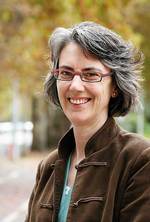Colleague development: working together to improve learning and teaching
The Faculty of Health Sciences has recently introduced the Colleague Development Program to improve the quality of learning and teaching, and to improve support for Faculty teachers. The program is open to anyone who teaches and can be adapted to suit both early career and experienced teachers. Associate Professor Maree O'Keefe, the Associate Dean Learning and Teaching, explains.  Commentary Commentary
While student surveys provide valuable information to teachers about student experiences of learning and teaching, feedback from teaching colleagues is also valuable. Colleague feedback can complement student feedback by providing information on aspects of teaching that students may find hard to judge, such as the currency of subject matter, the appropriateness of student learning objectives or the validity of the assessment program. Colleagues can share personal experiences and also make suggestions to improve teaching. In 2006, the Faculty of Health Sciences introduced the Colleague Development Program. The program - supported by funds provided through the University of Adelaide Learning and Teaching Development Budget - gives teaching staff opportunities to develop their teaching skills and to explore innovative teaching and/or assessment techniques. Faculty teachers from a number of disciplines were involved in developing the program. The Colleague Development Program is built around providing constructive feedback and on promoting collegiality within and across traditional discipline boundaries. One of the key aims is to facilitate peer observation partnerships between teachers. Participating teachers ask a trusted teaching colleague to act as an observer of their teaching. Before the observation begins, the teacher tells their observing colleague which aspects of their teaching they would like feedback on. The observing colleague's task then is to tell the teacher what was done well, what was done less well and to make specific suggestions for improvement. The colleague observer and the teacher discuss these observations and suggestions and the colleague observer prepares a written summary of mutually agreed outcomes. Each participating teacher attends an introductory seminar and receives an information pack with observation and reporting proforma. A number of lunches are scheduled where teachers come together over the course of the program to share their experiences in an informal setting. While this approach to stimulating interest in learning and teaching and enhancing teacher skills is not a new concept, the key to the Colleague Development Program's success is its flexibility and efficiency. Teachers identify specific aspects of their teaching for feedback to guide the observation. As the observation and feedback process is focused, the actual time commitment to complete the program can be as little as four to six hours. On completing the program, teachers receive a certificate of participation. This certificate can then be included in a teaching portfolio together with the written evaluation of their teaching and suggestions for improvements. More than 40 teachers joined the program in 2006 and the response this year has been excellent, with participants from across all disciplines of the Faculty of Health Sciences signing up. The Colleague Development Program has been a welcome and successful addition to Faculty learning and teaching professional development activities. The feedback from teachers is very positive. Participants report increased confidence in teaching, exposure to new ideas, a feeling of institutional support and a greater sense of collegiality. In particular, teachers find the program very relevant to their day-to-day teaching development needs and can apply information from the program easily to improve their teaching. One teacher commented: "I appreciated someone actually observing my teaching. I've been doing a bit of teaching for a while but I haven't actually had someone sit down to observe me [before]. I learned a lot about my style of teaching and what engages students and what didn't." In the words of another participating teacher: "Anything that improves teaching is worth doing, and this is worth doing." By Maree O'Keefe
|





